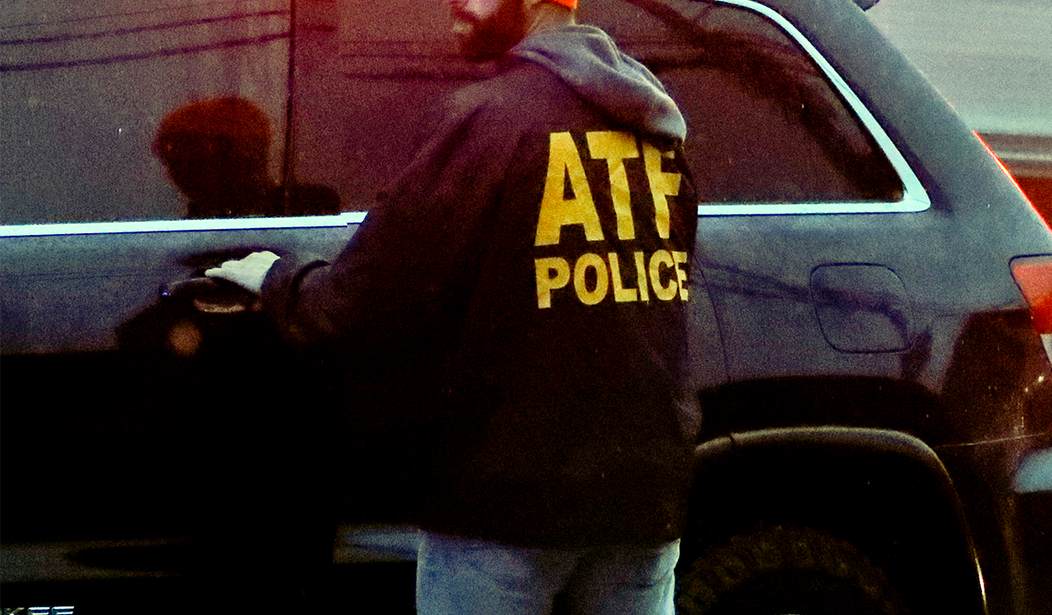Imagine showing up for work one morning and finding multiple law enforcement agents waiting to put you in handcuffs for a crime you didn't commit. That's what happened to Bryan Wilson last December, when a drug task force comprised of officers from West Columbia, South Carolina and the ATF took him into custody in front of his co-workers and employer after accusing him of trafficking guns and drugs.
Wilson protested his innocence to everyone from the cops who arrested him to the judge who formally charged him, but those pleas fell on deaf ears until a federal public defender was assigned to represent him started to dig into his story and realized that Wilson was telling the truth.
It turned out there was one person in the courtroom who believed him — Jenny Smith, his court-appointed federal public defender — and over several hours, she convinced a federal prosecutor to double check the arrest and see if the Bureau of Alcohol, Tobacco, Firearms and Explosives didn’t, after all, have the wrong man.
After more investigation that day, the feds realized they had blown it. They made a motion to drop all charges against Wilson. Federal prosecutors apologized. U.S. Attorney Adair Boroughs apologized.
Federal Judge Joe Anderson quickly granted a motion to dismiss the charges “with prejudice,” meaning they cannot be brought again.
No one has ever explained how the mixup happened. It apparently was not a case of mistaken identity.
We can add this to the ever-growing list of topics that ATF Director Steve Dettelbach should be grilled on the next time he makes an appearance on Capitol Hill. As the lawsuit details, while Wilson is a gun owner, he's never dealt drugs or trafficked firearms, despite what police testified during his initial court appearance.
At that hearing, a law officer “falsely told the judge that ATF had been watching Mr. Wilson for 13 months and then listed dates the ATF falsely claimed he sold drugs. The agent also falsely told the judge that the Government had Mr. Wilson on tape committing these crimes,” the lawsuit said.
After the hearing, Wilson continued to tell his lawyer there had been a mistake. The lawyer pressed the issue with federal prosecutors and after several hours, the mistake was acknowledged.
Wilson was freed.
But Wilson has suffered since the events of that day, the lawsuit said.
He has begun having migraines. Rumors have been spread about him among his co-workers. He gets messages on Facebook. Some rumors say he “rolled” on other defendants and worse, the lawsuit said.
“He has stopped going to the gym or doing fight training — his fitness passion. He worries about his teenage daughter learning what happened to him. He also worries for his parents, specifically his mother who continues to feel paranoia and anxiety stemming from the incident and now calls her son while he is at work to check on his well-being,” the lawsuit said.
Wilson hasn't officially filed suit against the ATF yet, but Christopher Kenney, who's now serving as Wilson's attorney, says that's likely going to come once he's waited the required six months before he can challenge the agency's actions under the Federal Tort Claims Act. The ATF should be served with Wilson's lawsuit at some point in June, and it will probably be July before the DOJ files its response, which might tell us something about how the agency managed to screw up so badly.
Kenney said one of the purposes of the lawsuit is to find out exactly how this happened. Ordinarily, law officials in the federal system take great care in identifying the proper people whose names they bring before a federal grand jury. Prosecutors who work with front line law enforcement officers can ask about the suspects.
“Bryan is misidentified from the very first incident,” Kenney said. “One of the reasons to bring this case is to figure out what happened.”
If Wilson was "misidentified", as Kenney believes, then who was the ATF surveilling for more than a year? How did Wilson show up on the ATF's radar when it came time to issue an arrest warrant if he wasn't the actual subject of the investigation? And what happened to the person the ATF was supposed to arrest if Wilson wasn't their man? Was the actual suspect ever correctly identified and taken into custody after the snafu with an innocent man?
I'm glad that Wilson isn't going to let this go with just an apology from the U.S. Attorney's office, but I'd love to see Congress take an interest in this wrongful arrest as well. Bryan Wilson deserves answers, and with Biden's DOJ going to bat for the agency the House Oversight Committee needs to Dettelbach to account for the inexplicable failure that happened under his watch.








Join the conversation as a VIP Member